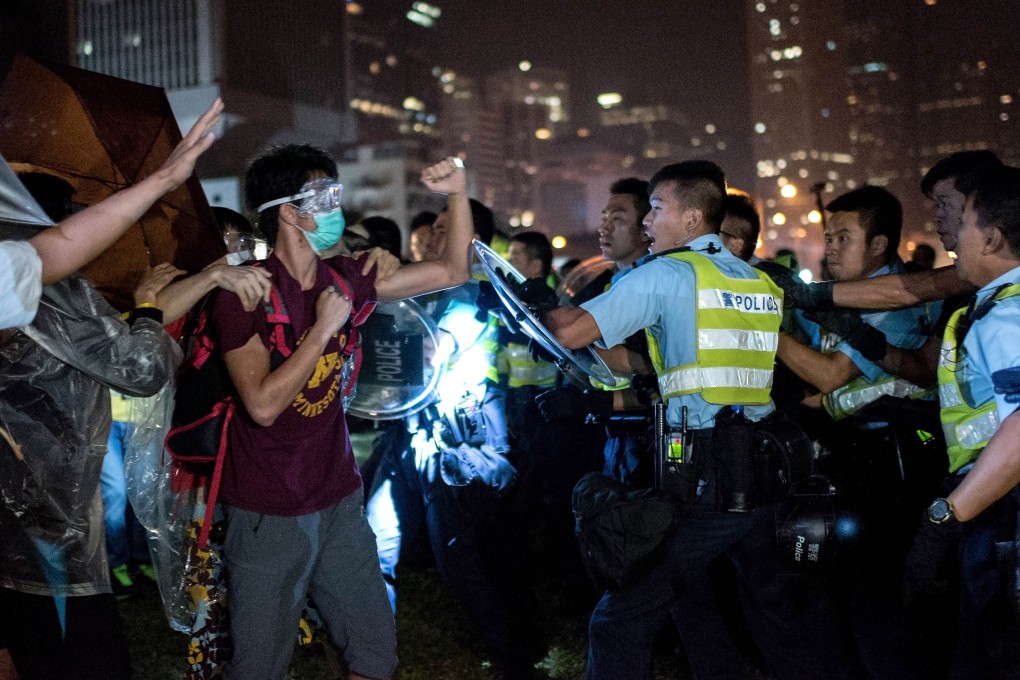Blame Hong Kong's inept officials for blackening police's name
Stephen Vines says society will suffer for the politicisation of the force

One of the most damaging legacies of the "umbrella movement" has been the determination of the Leung Chun-ying administration to politicise the police force. Even now, Leung continues to insist that the fundamental political and social issues that galvanised this movement should be viewed solely through the prism of being a law-and-order problem.
As a consequence, the police force has been used as the government's battering ram, placing its officers on the front line of the political reform debate, in place of the administration's leaders who lack the courage to stand there.
Worse, in many ways, have been the attempts by the wider anti-democrat movement to hijack the police force for their own political ends, as they seek to portray the police as stalwarts of their camp.
Unsurprisingly, this has taken its toll on public perceptions of the force. A recent opinion poll showed a sharp drop in its popularity, leaving the force trailing the People's Liberation Army garrison.
My personal experience of nearly all encounters with the police left me with a strong sense of both their professionalism and commitment to duty. Yet, even someone like me, who is loath to become a police critic, is now having doubts.
It is almost certainly no coincidence that Hong Kong's present police commissioner is arguably the most political chief ever to lead the force. Andy Tsang Wai-hung is also a highly controversial figure within the force, having done little to win the confidence of his frontline officers. However, he is highly prized in both Beijing and among Leung's clique of officials.
They appear not to have noticed Tsang's almost total disappearance from the public eye during the protests, only emerging for a press briefing once the last protest site was cleared. No wonder officers raise questions about his leadership from the rear.